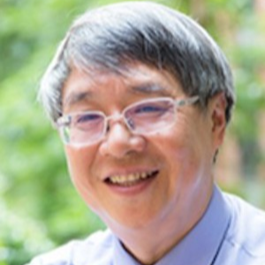Alireza Haghighi, Harvard Medical School, USA
Dr. Haghighi is an Assistant Professor and clinician-scientist in the Department of Medicine, Brigham and Women's Hospital, Harvard Medical School. He is an American board-certified geneticist. He completed his graduate and clinical training at University of Oxford, and Harvard Medical School. Dr. Haghighi is the Founding Director of BWH International Center for Genetic Disease (iCGD), and the PI and Director of the National Genome Project of Bahrain (Phase I: ~$10M) at Harvard. For his research, he investigates the genetic basis for human disease, with a focus on cardiovascular disease (e.g., cardiomyopathies, and congenital heart disease) and translating the research discoveries into better diagnostics and improved patient care. He is the PI on two NIH- and AHA-funded projects for investigating the genetics of unexplained cardiomyopathies in adult and children. He is also the Director of GEnetics NEtwork in the Middle East and Africa (GENE-ME), a large clinical research network for genetic studies in those regions that aims to: (1) identify novel disease-causing mutations and genotype-phenotype correlations, and (2) advance genomic medicine in the Middle East and Africa through capacity building. Dr. Haghighi has led many international projects for advancing medical science in different countries to improve the health and well-being of people. He is the Founding President of Advancement Initiative for Medicine and Science (AIMS), a global foundation that brings together academics and physicians and is dedicated to advancing medical science and healthcare around the world. He has received many awards for his research and international projects, including the International Genetic Disorders Prevention Award in 2018 (for outstanding contributions to and scientific excellence in genetic research), the Global Health Pioneer Award in 2019 (for significant contribution to improving the quality of life through innovation and capacity building).
Title: Genomics and AI: Transforming the Future of Precision Medicine
Abstract:

Soumya Raychaudhuri, Harvard Medical School, USA
Soumya Raychaudhuri is an institute member of the Broad Institute and serves as the director for the Center for Data Sciences at Brigham and Women’s Hospital (BWH), where he is also the JS Coblyn MB Brenner Distinguished Chair in Rheumatology/Immunology. Raychaudhuri is a professor of medicine and biomedical informatics at Harvard Medical School. Additionally he is a clinically active rheumatologist and sees patients at Brigham and Women’s Hospital Orthopaedic & Arthritis Center. Raychaudhuri has used genetics, genomics, and human immunology to define the basis of rheumatoid arthritis and other immune-mediated diseases. He is one of the leaders of the International Genetics of Rheumatoid Arthritis consortium, which has identified over 100 risk alleles. He has also been at the forefront of devising statistical and computational methods to localize genetic association signals to causal variants, and to interpret human genetic data in the context of functional information. Raychaudhuri currently has active research programs in the human genetics and functional genomics of tuberculosis, type I diabetes, and rheumatoid arthritis, with a specific focus on using single cell genomic strategies to understand tissue inflammation and the role played by CD4+ T cells and fibroblasts. He is a member of the IGVF, ITN, and AMP AIM consortia. He is the recipient of the Doris Duke Clinical Scientist Development Award and the Henry Kunkel Young Investigator award from the American College of Rheumatology, and he is a member of the American Society for Clinical Investigation and a fellow of the American Association for the Advancement of Science. Raychaudhuri completed his undergraduate degrees in biophysics and mathematics from SUNY Buffalo. He went on to join the Stanford University Medical Scientist Training Program where he completed his M.D. and Ph.D. degrees. He pursued clinical training in internal medicine, followed by subspecialty training in rheumatology at BWH. He concurrently completed postdoctoral training in human genetics at the Broad Institute with Mark Daly. In 2010, he launched his laboratory and joined the faculties of the BWH Divisions of Genetics and Rheumatology.
Title: Using large scale genomic data to define immune mechanisms of complex autoimmune disease
Abstract: Rheumatoid arthritis is a canonical autoimmune disease, affecting up to 1% of the population. It is associated with autoantibodies and causes a chronic inflammatory arthritis leading to pain, disability and a reduction in lifespan. To define mechanisms of rheumatoid arthritis, we and others have used multiple strategies, and have sought to define key human mechanisms. Using human genetics, we and others have identified ~150 risk alleles in addition to those within the HLA. To define disease mechanisms, we have used single-cell data and tissue imaging data to define key cell states in the context of tissue inflammation. Finally, we have used functional genomics approaches, including single-cell RNA-seq data, single-cell ATAC-seq data, and gene-editing to define disease mechanisms relevant to these key cell states. Each of these analyses relies heavily on computational methods, including those that use artificial intelligence strategies. Successful definition of key mechanisms may lead to novel therapeutics, and potentially a cure.
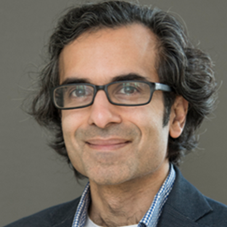
Manolis Kellis, Massachusetts Institute of Technology, USA
Manolis Kellis is a professor of computer science and artificial intelligence at MIT, and leads the MIT Computational Biology Group at MIT CSAIL and the Broad Institute of MIT and Harvard. His research seeks to understand the mechanistic basis of human disease, to develop new therapeutics that reverse disease circuitry, and to enable personalized medicine, using AI and machine learning to integrate genetics and genomics, single-cell epigenomics and transcriptomics, and high-throughput experiments, applied to Alzheimer's, Obesity, Cancer, Schizophrenia, Cardiovascular, and Immune Disorders. He helped lead several large-scale genomics projects, including Roadmap Epigenomics, ENCODE, Genotype Tissue-Expression (GTEx), and Comparative Genomics projects. He has authored over 280 journal publications cited more than 160,000 times. He received the US Presidential Award for Science and Engineering by Barack Obama, the Mendel Medal for Outstanding Achievements in Science, the NIH Director’s Transformative Research Award, the Argo Science Award by the Hellenic President, the Boston Patent Law Association award, the NSF CAREER award, the Alfred P. Sloan Fellowship, the Technology Review TR35 recognition, the AIT Niki Award, and the Sprowls award for the best Ph.D. thesis in computer science at MIT. He has obtained more than 20 multi-year grants from the NIH, and his trainees hold faculty positions at Stanford, Harvard, CMU, McGill, Johns Hopkins, UCLA, and other top universities. He lived in Greece and France before moving to the US, and he studied and conducted research at MIT, the Xerox Palo Alto Research Center, and the Cold Spring Harbor Lab. For more info, see: compbio.mit.edu.
Title: AI for genomic medicine: disease circuitry, patient heterogeneity, therapeutic design
Abstract: In this talk I will describe the latest advances in AI for healthcare, medicine, biology, therapeutic design, and pharmaceutical development. We have witnessed a dramatic transformation in AI technologies beyond simply prediction, classification, and correlation to foundational models for understanding biological function, chemical structure, and disease states. In this talk I will describe the foundational technologies that power these advances, and our own work in understanding the mechanistic basis of human disease, using this knowledge to identify new targets and design new therapeutics that reverse disease circuitry, using machine learning to integrate genetics and genomics, single-cell epigenomics and transcriptomics, and high-throughput experiments. I will describe our work in six areas: (1) Genomes, their programming language, their circuitry, epigenomics, dynamics, single-cell multi-omics. (2) Disease mechanism, genetic variation, patient subtyping, personalized medicine, electronic health records. (3) Application to neuroscience, Alzheimer's, schizophrenia, cardiovascular disease, obesity, cancer, evolution. (4) Therapeutic design, drug repurposing, high-throughput experiments, drug screening, genome circuitry manipulation, disease reversal. (5) Statistical genetics, causal inference, geometric deep learning, joint embeddings, contrastive learning, computational chemistry, therapeutic design. (6) Embedding space idea representations, visualization, and navigation for learning, discovery, invention, and collaboration.
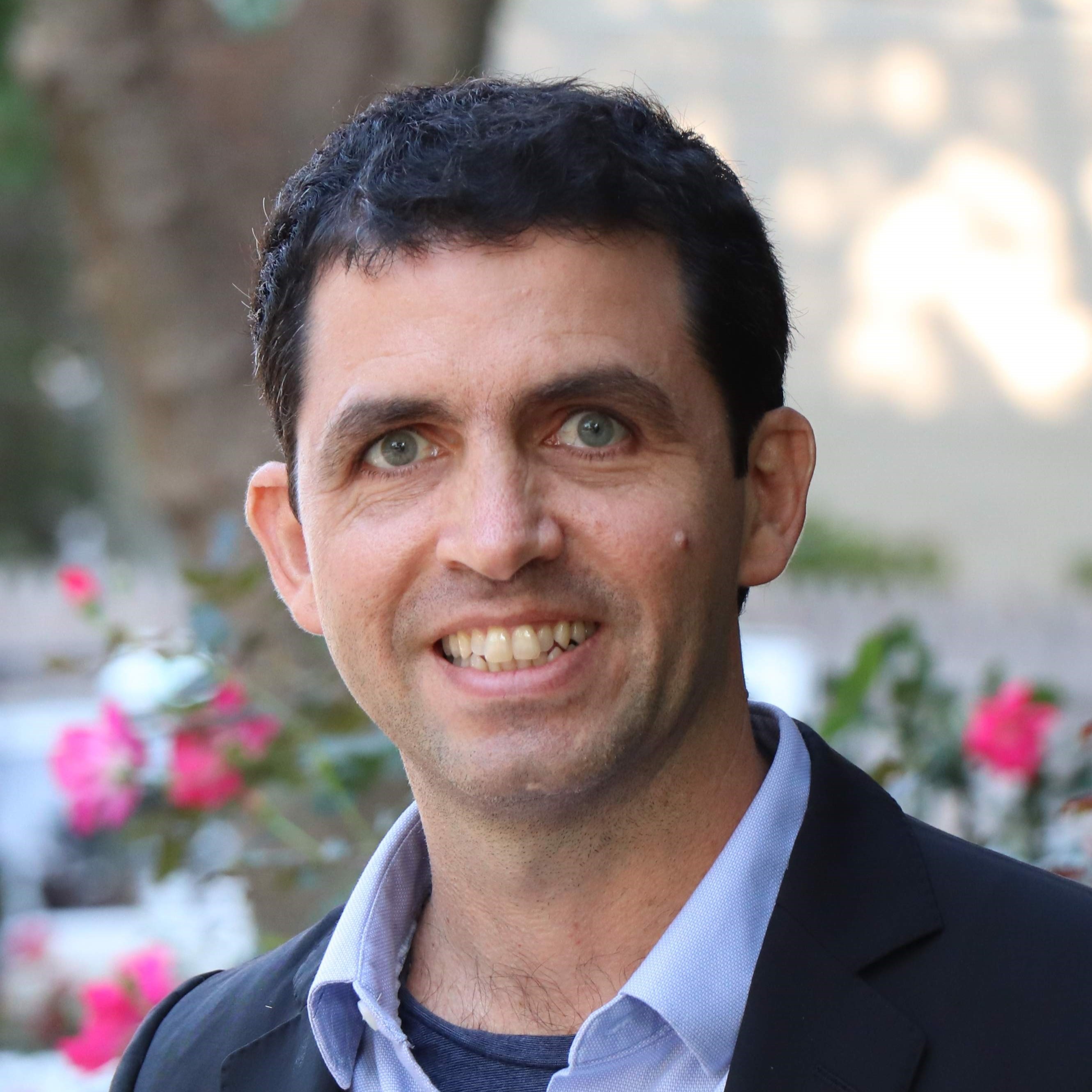
Edward Y. Chang, Stanford University, USA
Edward Y. Chang has been an adjunct professor of Computer Science at Stanford University since 2019 and a visiting chair professor at Asia University. His current research interests encompass foundation models, consciousness modeling, and healthcare. Chang earned his MS in Computer Science and PhD in Electrical Engineering, both from Stanford University. In September 1999, he joined the ECE department at UC Santa Barbara, where he was granted tenure in 2003 and promoted to full professor in 2006. From 2006 to 2012, Chang served as a research director at Google, leading research and development in areas such as scalable machine learning, indoor localization, Google QA, and recommendation systems. In the following years, he served as the president of HTC Healthcare (2012-2021) and a visiting professor at the UC Berkeley AR/VR center (2017-2021), working on healthcare projects including VR surgery planning, AI-powered medical IoTs, and disease diagnosis. Concurrently, between 2019 and 2022, Chang acted as the chief NLP advisor for SmartNews, a Tokyo-based unicorn, focusing on developing interactive news. Chang is an ACM Fellow and IEEE Fellow, recognized for his contributions to scalable machine learning and healthcare.
Title:
Abstract:
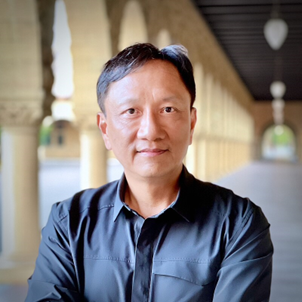
Yang C. Fann, National Institutes of Health (NIH), USA
Dr. Fann joined NINDS in 2002 as the Director of the Intramural IT and Bioinformatics Program overseeing the information technology support services and infrastructures as well as developing biomedical informatics research services including many database tools and clinical applications to assist investigators with their research. In addition to his role at NINDS, he served as a principal investigator on the Informatics Core of Center for Neuroscience and Regenerative Medicine working on building the informatics infrastructure for the National Traumatic Brian Injury (TBI) Study, a collaborative research program of the DoD and NIH from 2009 to2023. Beyond his administrative responsibilities, Dr. Fann has made significant contributions to the scientific community. He has served on several journals’ editorial boards and recently acted as a scientific judge for the COVID-19 Open Research Dataset Challenge (CORD-19)—an AI challenge involving collaboration between AI2, CZI, MSR, Georgetown, NIH, and The White House. His dedication and expertise have earned him numerous accolades, including NINDS and NIH Director’s Awards. Dr. Fann’s current research interests span computational biology, bioinformatics, and clinical research informatics. He also explores the application of information technology, including machine learning and artificial intelligence, to advance translational biomedical research.
Title:
Abstract:
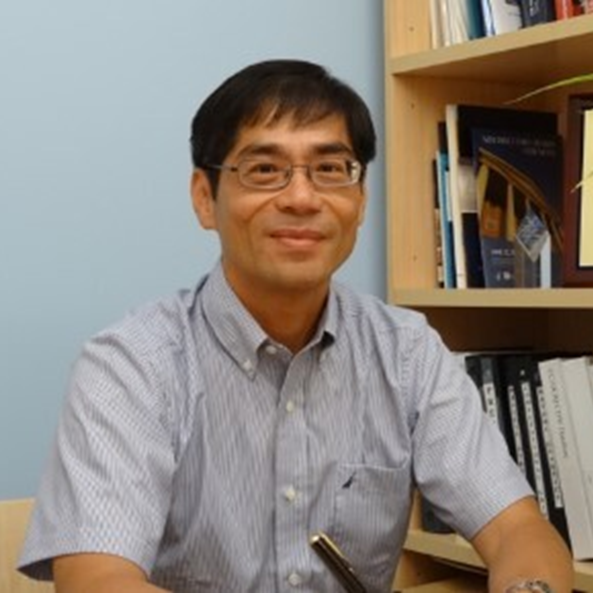
Mark Liao, Academia Sinica, Taiwan
Mark Liao received his Ph.D degree in electrical engineering from Northwestern University in 1990. In July 1991, he joined the Institute of Information Science, Academia Sinica, Taiwan and currently, is a Distinguished Research Fellow. He has worked in the fields of multimedia signal processing, image processing, computer vision, pattern recognition, video forensics, and multimedia protection for more than 30 years. During 2009-2011, he was the Division Chair of the computer science and information engineering division II, National Science Council of Taiwan. He is jointly appointed as a Professor of the Department of Electrical Engineering and Computer Science of National Cheng Kung University. During 2009-2012, he was jointly appointed as the Multimedia Information Chair Professor of National Chung Hsing University. Since August 2010, he has been appointed as an Adjunct Chair Professor of Chung Yuan Christian University. From August 2014 to July 2016, he was appointed as an Honorary Chair Professor of National Sun Yat-sen University. From November 2016 to November 2019, he was appointed as a Chair Professor of National Chiao-Tung University. He received the Young Investigators'' Award from Academia Sinica in 1998; the Distinguished Research Award from the National Science Council of Taiwan in 2003, 2010 and 2013; the National Invention Award of Taiwan in 2004; the Distinguished Scholar Research Project Award from National Science Council of Taiwan in 2008; and the Academia Sinica Investigator Award in 2010. He received the TECO award from the TECO foundation in 2016, and the 64th Academic Award from the Ministry of Education in 2020. His professional activities include: Co-Chair, 2004 International Conference on Multimedia and Exposition (ICME); Technical Co-chair, 2007 ICME; General Co-Chair, 17th International Conference on Multimedia Modeling; President, Image Processing and Pattern Recognition Society of Taiwan (2006-08); Editorial Board Member, IEEE Signal Processing Magazine (2010-13); Associate Editor, IEEE Transactions on Image Processing (2009-13), IEEE Transactions on Information Forensics and Security (2009-12), IEEE Transactions on Multimedia (1998-2001), and ACM Computing Surveys (2018-2021). Since 2021, he has been a Senior Associate Editor of ACM Computing Surveys. He has been a Fellow of the IEEE since 2013 for contributions to image and video forensics and security.
Title: Development of YOLOv4, YOLOv7, and YOLOv9
Abstract: YOLOv4 has been ranked first in the world object detection competition for two and a half months. It defeated the R&D teams of international companies such as Google, Amazon, Facebook, Microsoft, and Qualcomm. The birth of YOLOv4 is actually closely related to a project "Development of Smart Transportation System."
This project is funded by the Ministry of Science and Technology, and it has led to a four-year cooperative relationship between the Academia Sinica and the listed company Elan Electronics. This keynote speech will explain in detail the beginning and end of the implementation of this smart transportation project, and how to develop YOLOv4, the fastest and most accurate object detector in the world during the execution of the project. In Addition, I will also introduce YOLOv7 and YOLOv9, that were developed by our team in 2022 and early 2024, respectively. These YOLO series real-time object detection systems developed in Taiwan continue to lead the world stage and strive for supreme glory for Taiwan.
